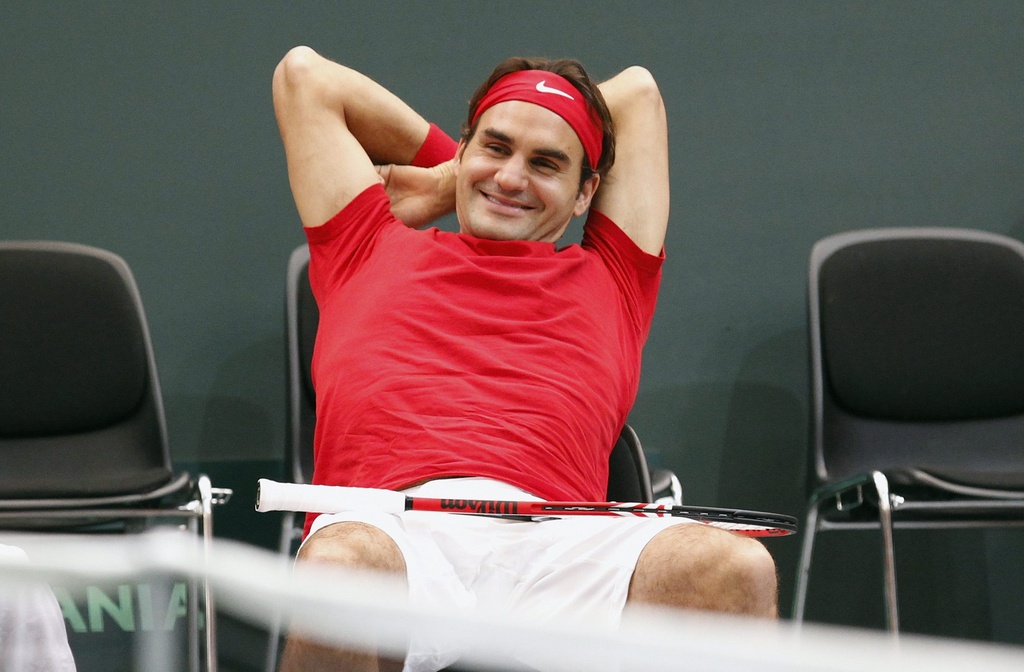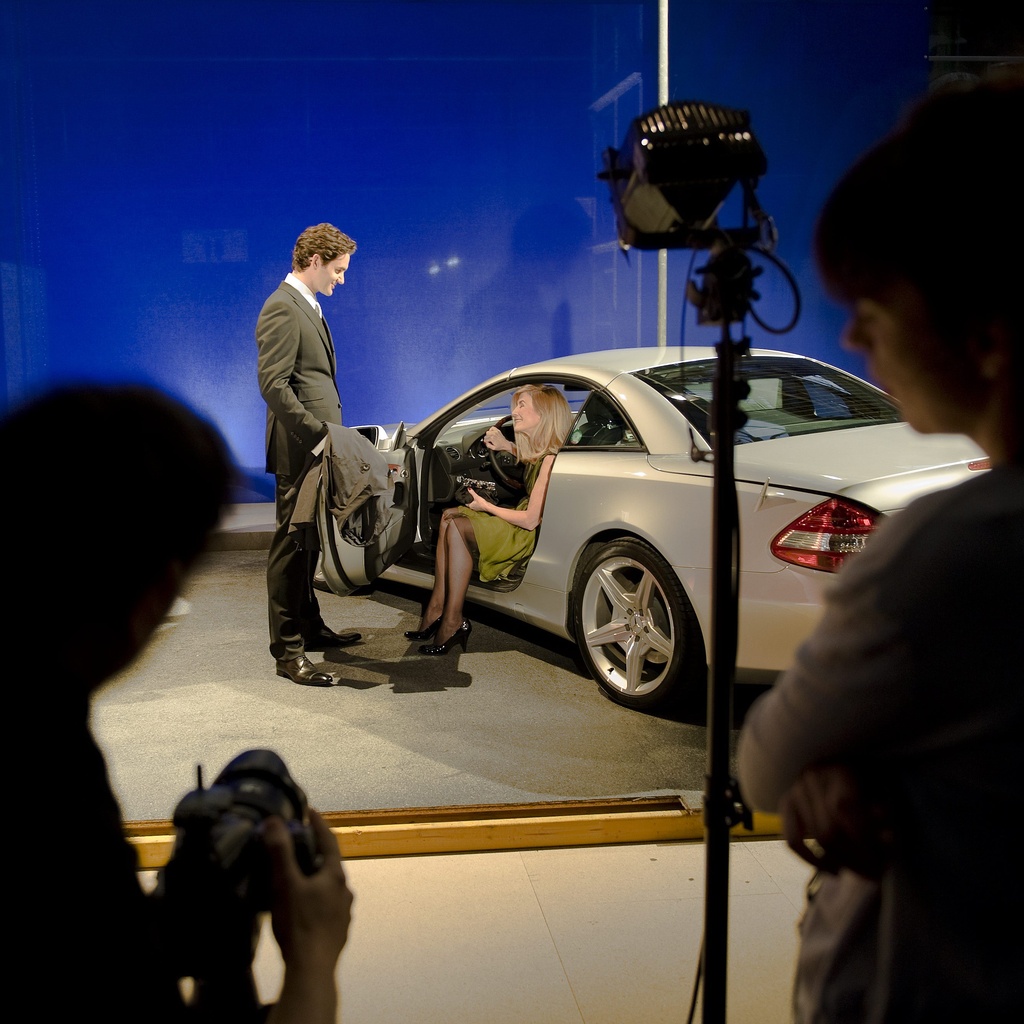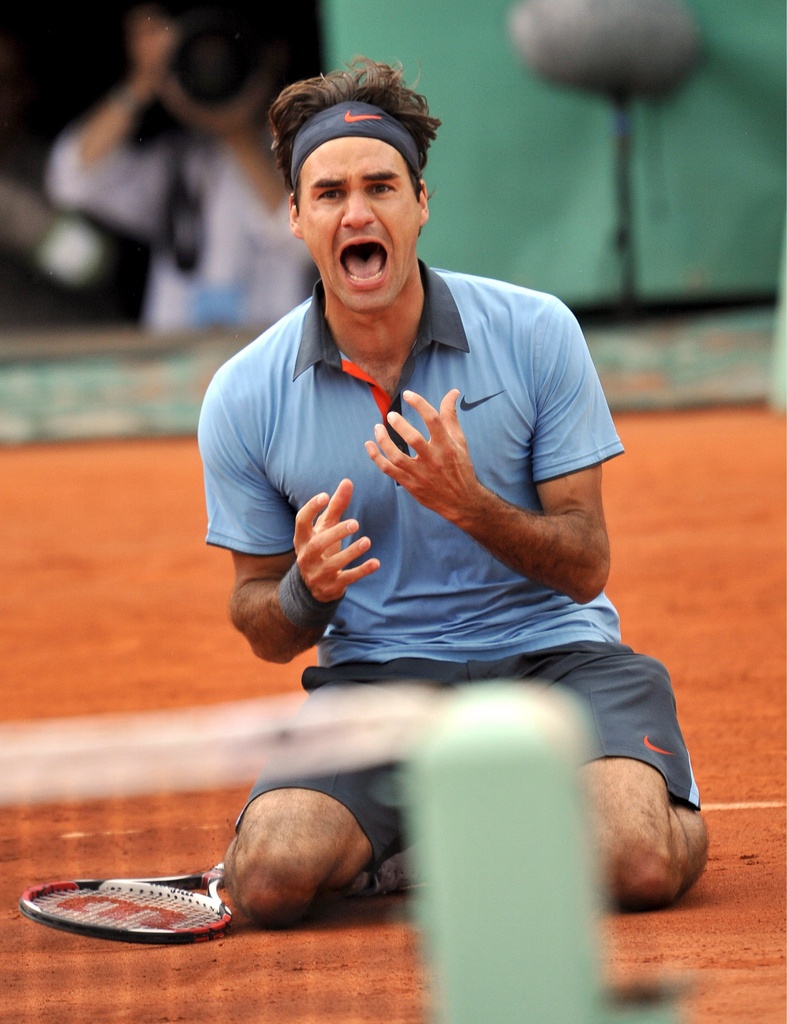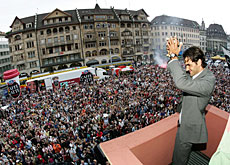Birthday boy Federer learns to 0-30

Swiss tennis star Roger Federer will be looking to win his first title as a thirtysomething this week at the Canada Masters in Montreal.
The world number three turns 30 on Monday but remains as philosophical as ever and says he’s already planning beyond the London Olympics in 2012. Others question whether this is the beginning of the end – or just the end of the beginning.
“Birthdays, they happen. They’re a part of life. I’m happy I’m getting older,” Federer said just before the start of his warm-up campaign for the US Open, which starts on August 29.
“I’d rather be 30 than 20 to be quite honest. This is, to me, a nice time.”
Nice indeed – since turning pro in 1998 Federer has amassed career prize money of $63,563,278 (SFr50 million), itself a small fraction of the estimated $60 million he earns every year in sponsorship.
It’s still not clear how Montreal officials will choose to celebrate his birthday, which falls on the event’s opening day, but the winner of a record 16 grand slam titles says he has no fears about turning 30.
“I’m looking forward to it. Canadians always make a big deal about my birthday. It will be exciting to see how they are going to celebrate it this time. Sometimes they start singing ‘Happy Birthday’ during a match. I’m not going to play on Monday, but you never know if they’re going to do something crazy another day.”
The father of two-year-old twin girls won in Canada in 2004 and 2006, losing in the final last year to Britain’s Andy Murray.
Long-term planning
Even as his birthday approaches, Federer is calmly planning the continuation of his golden career.
“I probably plan one-and-a-half years ahead. I’m already thinking beyond the Olympics next year.”
Federer says he draws inspiration from tennis greats who enjoyed longevity. “Like Andre Agassi, Jimmy Connors, Ken Rosewall, Rod Laver – it’s very inspiring to see what they were able to do for a very long period of time,” he said.
“My planning has always been long term. I’m looking forward to how much more I can achieve from this point on.”
Indeed, if Rosewall is anything to go by, Federer could be lifting silverware for another seven years. The Australian is the oldest winner of a grand slam title in the professional era (post-1968), winning the Australian Open in 1972 aged 37 years and two months.
More recently, Agassi won the 2003 Australian Open aged 32 years and eight months (and the same tournament two years earlier), with Pete Sampras going all the way in New York in 2002 aged exactly 31.
It’s also not too late to regain the number one ranking – Agassi was the best player in the world aged 33 years and four months.
Fitness
But being a professional tennis player is gruelling – physically and mentally. Swedish legend Björn Borg burnt out and retired at the age of 26. Swiss former world number one Martina Hingis, who herself turned 30 last September, retired (for the first time) aged 22 with ankle problems and then again aged 27 after testing positive for cocaine.
One of the secrets of Federer’s success is his fitness. A large part of the credit here has to go to Pierre Paganini, who has toned Federer’s muscles and legs for more than ten years.
“Tennis is not a sport that makes you old at 30,” Paganini told swissinfo.ch. “On the contrary, it helps those who are more mature. At that age, details make the difference.”
But when Federer was beaten by Djokovic in the semifinal of the Australian Open in January, it was the first time the Swiss wasn’t holder of one of tennis’s four major titles since 2003.
Many commentators believe this is the beginning of the end for Federer and that he’ll struggle to add to his collection. Paganini, however, dismisses the “theory of decline”.
“I don’ t understand how people can write such things. Between 28 and 30, it’s impossible to progress at the same rhythm as when you were 22 or 25,” he said.
“Put simply, others are progressing too and that is the charm of this sport. I have enormous respect for Djokovic and Nadal but even more for Federer because his longevity is incredible. He is very near them and always has a chance to beat them.”
Family distractions?
So is the 30-year-old Federer a step behind the 25-year-old Federer? Are his reactions slower?
Roland Carlstedt, a clinical psychologist and chairman of the American Board of Sport Psychology, says that because sports associations don’t measure athletes’ physical performances over their careers, any attempt to answer questions like this is nothing but speculation.
Nevertheless, he highlights certain signs that in his view are small but can be decisive.
“I suspect Federer’s iron concentration isn’t quite what it was,” Carlstedt told swissinfo.ch. “That could be connected to his new family life – one is faced with chores and responsibilities that previously simply didn’t exist.”
One’s powers of concentration might only be affected minimally, he added, “but against Djokovic or Nadal, being even a millisecond slower can be decisive”.
“Federer is still superlative, but he shouldn’t be stubborn and automatically reject scientific psychological help. Often champions don’t know how much they don’t know,” he said.
“He can no longer assume that he can regularly beat the big boys with his playing ability alone.”
Roger Federer was born on August 8 – making him a Leo, apparently a masculine sign – in 1981, the Chinese year of the rooster.
His birthday brothers and sisters include Princess Beatrice of York (1988), The Edge, U2 guitarist (1961), Nigel Mansell, Formula One champion (1953), Dustin Hoffman, actor (1937) and Paul Dirac, Anglo-Swiss Nobel-prize winning physicist (1902).
Events that happened on this day include Mont Blanc being climbed for the first time (1786), the Great Train Robbery (1963 – also criminal Ronnie Biggs’ 34th birthday), US President Richard Nixon resigning (1974).
Edited quotes from some of the 30 friends and celebrities who congratulate Federer in this week’s Schweizer Illustrierte magazine:
Diana Federer (big sister): “Who would have thought on your 30th you could look back on such an eventful time? … More important for me however is that you’ve stayed yourself and always kept your feet on the ground.”
Foreign Minister Micheline Calmy-Rey: “[Federer] represents an ambitious Switzerland that fears no challenges. I sometimes end up discussing him with my counterparts abroad.”
Prince Edward, Duke of Kent: “I’ve already presented him with the Wimbledon trophy six times. I hope to do so again. He is an outstanding player.”
Novak Djokovic: “Keep inspiring all the world of sport!”
Rafael Nadal: “Hopefully we can celebrate many more birthdays on the tour together.”
Boris Becker: “Thirty is an age at which athletes often look back … I hope Roger’s love for tennis continues for many years.”
Pete Sampras: “It’s been great getting to know Roger over the years – not only as a fantastic champion, but also as a kind person.”
Lindsey Vonn: “You’ve taken tennis to a level that’s never been seen before … But I think it’s off the court, with your foundation’s work for children, that you stand out.”
Michael Schumacher: “For me Roger embodies typical Swiss qualities: decent, precise and modest. I like such characters, and I love his game. Keep it up, Roger!”
(With input from Samuel Jaberg)

In compliance with the JTI standards
More: SWI swissinfo.ch certified by the Journalism Trust Initiative












You can find an overview of ongoing debates with our journalists here . Please join us!
If you want to start a conversation about a topic raised in this article or want to report factual errors, email us at english@swissinfo.ch.